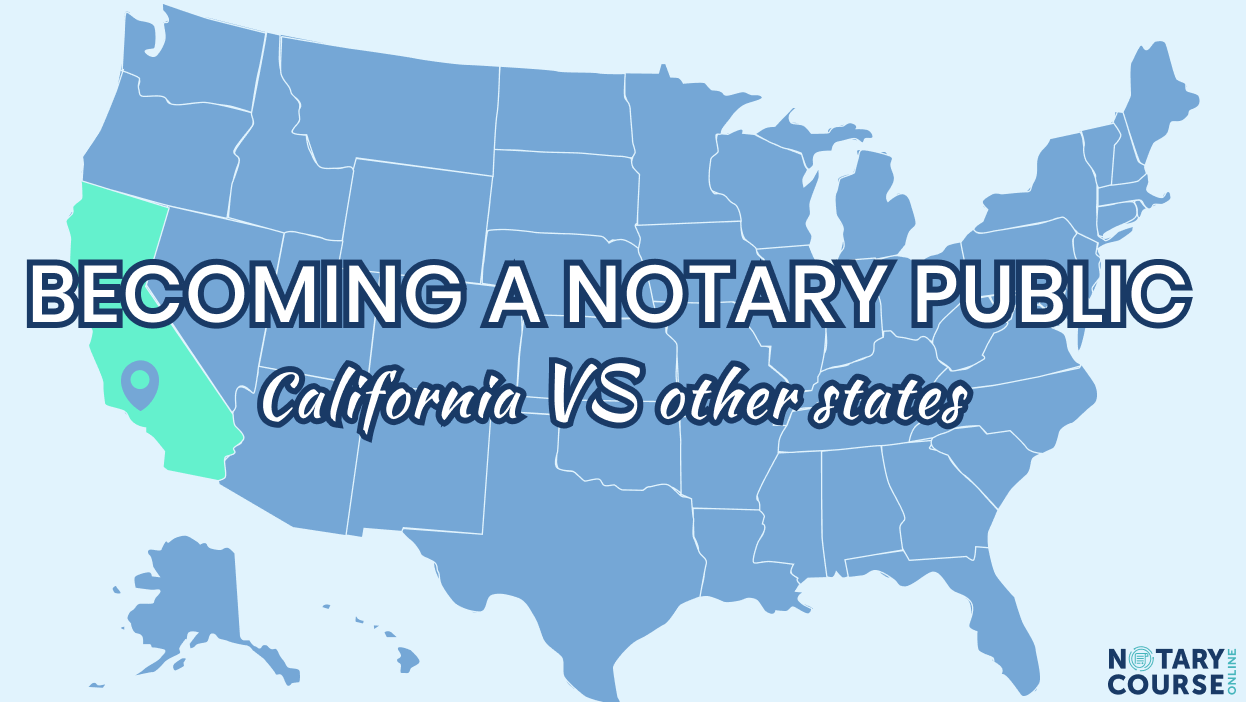California
Blog
Essential Notary Best Practices for Avoiding Legal Issues

-
by Notary Course Online
- July 30, 2025
Essential Notary Best Practices for Avoiding Legal Issues
Becoming a notary public is a rewarding profession that allows you to serve your community, facilitate important transactions, and ensure that legal documents are executed properly. However, with that responsibility comes legal risk. Even minor mistakes or lapses in judgment can lead to severe consequences, including lawsuits, fines, or even the loss of your notary commission.
To help protect yourself and the public, it’s crucial to follow notary best practices that promote compliance and legal accuracy. Whether you’re a newly commissioned notary or a seasoned professional, this guide covers essential tips to help you stay out of legal trouble and maintain a sterling reputation.
1. Always Require Personal Appearance
One of the most fundamental notary best practices is to require the signer to appear in person. Notarizing a document without the signer present, even if you know them personally, is a major violation in every U.S. jurisdiction.
Why It Matters:
- Prevents fraud or coercion
- Ensures the signer understands what they are signing
- Confirms that the person is willing and not under duress
Remote online notarizations (RON) are allowed in some states under strict rules. If you’re performing notarizations remotely, ensure you follow your state’s specific guidelines for RON platforms, identity verification, and audio-video recording requirements.
2. Verify the Signer’s Identity
You must positively identify your signer using acceptable forms of identification, typically government-issued photo IDs such as:
- Driver’s license
- State-issued ID
- Passport
- Military ID
In some cases, credible witnesses may be used to verify identity. However, this is highly regulated and should only be used if your state allows it—and you are familiar with the legal process for doing so.
Avoid These Pitfalls:
- Never accept expired IDs unless your state explicitly allows it
- Do not rely solely on familiarity or verbal assurance
- Double-check that names match exactly between ID and document
3. Keep a Detailed Notary Journal
Even if not required by your state, keeping a notary journal is one of the most valuable habits for legal protection. It serves as an official record of all notarial acts and can defend you in case of a dispute or legal challenge.
What to Record:
- Date and time of the notarization
- Type of notarial act performed
- Document title/type
- Signer’s name and contact information
- Type of ID provided and expiration date
- Any special circumstances or observations
- Signer’s signature & thumbprint if required
- Your fee, if any
Why It Helps:
A journal provides a reliable backup in the event of:
- Litigation
- Audit or complaint
- Questions regarding authenticity of a notarized document
4. Avoid Offering Unauthorized Legal Advice
As a notary, you are not allowed to provide legal advice unless you are also a licensed attorney. Many notaries unintentionally cross the line by interpreting documents or helping someone decide which notarial certificate to use.
What You Can’t Do:
- Suggest what type of notarization is required
- Explain legal terms or implications
- Draft or alter legal documents
What You Can Do:
- Describe the differences between types of notarial acts if asked factually
- Advise the signer to consult with an attorney or the document issuer
Offering unauthorized legal advice even with good intentions can result in fines, lawsuits, or license suspension.
5. Use Correct Notarial Wording and Certificates
Incorrect or missing notarial certificates are among the most common causes of rejected documents or legal complications.
Guidelines to Follow:
- Only use certificate wording approved in your state
- Ensure the certificate is attached to or part of the notarized document
- Double-check that all fields are filled out completely and accurately
- Include the correct venue (state and county)
Your notary stamp must also include all the required elements like your name, commission number, expiration date, and state. Using an outdated or incorrect stamp could invalidate the notarization.
6. Maintain Impartiality and Avoid Conflicts of Interest
You must remain neutral and impartial in every notarial act. This means never notarizing documents in which you have a direct or financial interest.
Avoid Notarizing for:
- Yourself
- Immediate family members (in most cases)
- Business transactions that benefit you financially
Even if your state allows it under specific circumstances, it’s generally a best-practice to avoid these scenarios to preserve public trust and avoid legal scrutiny.
7. Understand and Follow State Laws and Updates
Each state has unique laws and regulations for notaries. It’s your responsibility to stay informed about changes to notary requirements, approved forms, procedures, and penalties.
You should regularly review:
- Your state’s notary handbook
- Notices from the Secretary of State
- Updates to remote notarization laws
Completing continuing education such as a refresher course or renewal training is a proactive way to maintain compliance. NotaryCourseOnline.com offers comprehensive training tailored to your state requirements to keep you current and confident.
8. Protect Yourself with Errors and Omissions (E&O) Insurance
Even the most careful notaries can make honest mistakes. That’s why E&O insurance is a smart investment. It protects you financially if a client files a claim for damages resulting from an error or omission in your notarial services.
Benefits of E&O Insurance:
- Covers legal defense costs
- Offers peace of mind
- Builds credibility with clients
While not required in all states, many employers and agencies prefer notaries who carry E&O coverage.
9. Refuse Suspicious or Incomplete Notarizations
Notaries are expected to act as gatekeepers of trust, so it’s okay—and necessary—to say no when things don’t feel right.
Common red flags:
- Signer seems confused or pressured
- Document is incomplete or contains blank spaces
- ID is questionable or inconsistent
- The signer does not speak your language and you can’t communicate directly
In such cases, it’s better to decline the notarization than risk legal consequences. Always document your reasons in your journal.
10. Stay Professional and Respect Confidentiality
Notaries handle sensitive documents, so professionalism and discretion are vital.
Best Practices:
- Dress appropriately and maintain a respectful tone
- Never discuss or disclose information from documents
- Secure your journal and stamp when not in use
- Return documents only to authorized parties
These practices help build client trust and protect you from liability or ethical complaints.
Final Thoughts
Serving as a notary public involves more than just signing and stamping documents—it requires a strong commitment to integrity, accuracy, and compliance. Following these notary best practices is the best way to avoid legal issues and establish yourself as a trusted professional.
By staying educated and cautious, you’ll safeguard not just your clients but your own notarial commission and reputation.
If you’re ready to enhance your knowledge, get state-specific training, or renew your certification, visit NotaryCourseOnline.com for easy-to-follow courses that keep you compliant and confident.
FAQs
- What are the most common mistakes that lead to notary legal issues?
The most frequent errors include notarizing without the signer present, failing to verify identity properly, using incorrect notarial wording, and offering legal advice. Keeping a detailed journal and staying current on your state’s laws can help prevent these problems.
- Can I notarize a document for a family member?
In many states, notarizing for immediate family members is discouraged or prohibited due to conflict of interest concerns. Even if it’s technically allowed, it’s best to avoid doing so to remain impartial.
- Is a notary journal mandatory in all states?
No, not every state requires a journal, but keeping one is highly recommended. It provides legal protection and documentation in case of disputes or investigations.
- How can I tell which notarial certificate to use?
You should never decide for the signer. Instead, ask the document issuer or suggest the signer consult a legal professional. However, you can explain the general purpose of different certificates—like acknowledgments vs. jurats.
- Does NotaryCourseOnline.com offer training for my state’s requirements?
Yes, NotaryCourseOnline.com provides comprehensive, state-specific training programs to help you meet your local notary laws, pass your exam, and renew your commission with ease.






 Congratulations!
Congratulations!